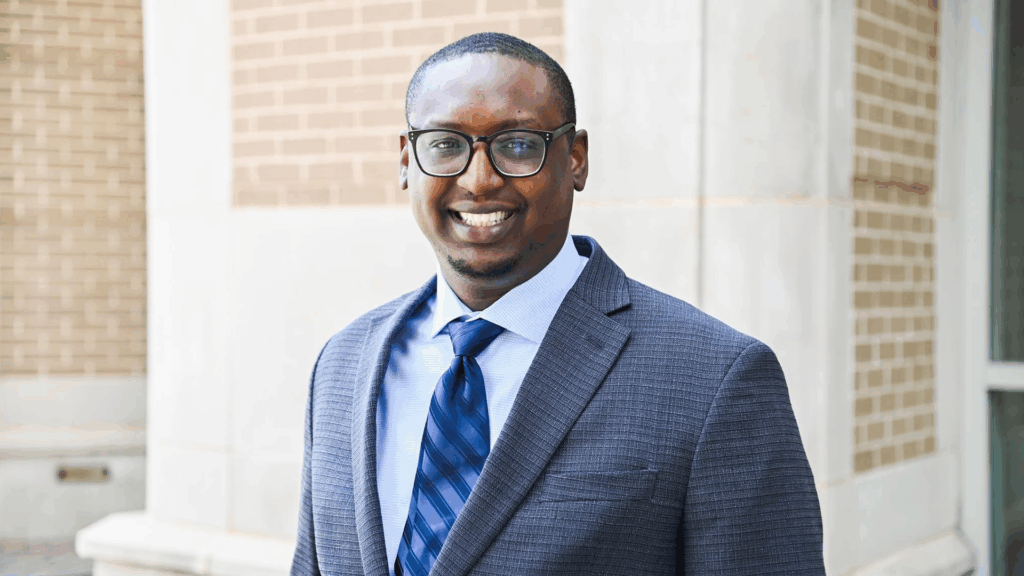The Courage to Transform Pain into Purpose
By Tremaine Sails-Dunbar

“To whom much is given, much is required.” This familiar Biblical passage has profound implications for those whose humanity has been eroded by the relentless weight of mental illness. Under common pretense, many interpret this passage as a call to those who have accumulated great wealth, prestige, or acclaim, but those who have experienced the profound stigmatization and social exclusion associated with mental illness, one that challenges the very fabric of their understanding of self in the world, also have a responsibility. They must learn to give to the world a sane elocution of life; an advocacy-oriented articulation of their trials and how they maneuver through recovery. Some call this lived experience activism. Others call it firsthand knowledge; however one frames it, the question of operationalizing courage transformed from discomfort persists.
To this, I discovered from my lived experience, there is a pathway that sheds light on this tumultuous journey. This lighted road is one among many, beginning with acknowledgement of one’s condition, believing in one’s own humanity, and finally advocating for oneself and for others who are still on the quest to position justice and love as the ultimate source of hope. This form of restitution from mental illness can take many forms. In searching for meaning within my suffering, Viktor Frankl’s sentiments ring true in that we all must find our own unique meaning in life. Among the many factors that have helped me find and act on my meaning, spirituality and community have played prominent roles. My hope is that, however the configuration of life manifests for those experiencing mental illness, they find solace in commanding attention about a reality that, for so many, is damning.
When I was first diagnosed with a mental illness, an existential and psychological crisis ensued. I have two family members with a severe mental illness, but I never thought that their fortune would be mine. In my life, I had one instance when psychotic symptoms engulfed normality. Auditory hallucinations, severe mood swings, and uncontrollable aggression swept through my mind, leaving the true me to spectate. Symptoms differ for everyone: for some it’s depression, for others obsessive-compulsive disorder, and for others anxiety. With a mental illness, the individual is lost in the circumstance, unaware that a life-altering change has taken place.
Alongside these psychological changes come changes to one’s social and economic milieu. In my life, I saw some friendships dissipate abruptly, and others gently fade away. Employment was difficult to maintain, as mood and mind vied for primacy in my life. Questions of self-worth and identity plagued my soul. It is true that as humans we become attached to a sense of self embedded within us at an early age, and that with each new experience, there is a tension between the old and the new, each proselytizing the other. I learned from my experience that if recovery is ever to be imagined, then I must come to terms with the puckish nature of acceptance, realizing that life can only be lived within the confines of the hand that God deals. Denial leads to a life of catastrophe, but acceptance beckons one to muster the courage to persevere despite the odds.
The belief that I could overcome such a hellish reality was the second stage towards finding a greater purpose in life. After I accepted my fate, my condition, and my reality, I made the conscious decision that I would become a victor and not a victim. It’s extremely easy to believe that once diagnosed with a mental illness, one’s life is over, and to be honest it’s a circumstance rooted in confusion. It’s as if the caterpillar has taken refuge in its cocoon, awaiting a metamorphosis to take place. The caterpillar has no idea what the future holds, only that a prison created by itself houses its delicate frame. It has no idea that it will be refined and reshaped to become a new creature that gives the world beauty.
But what takes place in dormancy? For people with mental illness, it’s the piecing back together of their mind and their life. This takes the form of discovering new friends, engaging in new forms of intimacy that show the depths of the human spirit, and developing new strategies that help them cope with their condition. Some go to therapy, listening to the expertise of psychologists, and others take psychotropics, and still others combine the two. My personal cocoon was both of those mentioned above and the church. Human spirituality and coping strategies changed my understanding of the world. I no longer saw the world through a passive lens; instead, I was an active agent with the ability to take life on with passion, integrity, and love. My mind, though delicate, became my own, and I vowed to use it for the betterment of those like me.
In fact, in my cocoon, outside forces compelled me to look within. The church and religion became a place of refuge and a bastion of opportunity. Its teachings gave me a semblance of hope. As a person experiencing mental illness I longed for a greater purpose, a calling that helped me make sense of my condition. Through my faith, I found coping mechanisms and a calling to help others like me; others whose lives had been drastically altered by mental illness. In the cocoon, a new life is engendered out of the chaos and despair of mental illness. Only then can the butterfly emerge.
After we have acknowledged our condition and embarked on the journey of developing control of our unique experiences with mental health, our task must be to give the world an unabashed version of ourselves, rooted in love, respect, and dignity. Only when looking within can we find a greater purpose in life. The hope is that through this, we find a greater meaning and authentic happiness.
My work with the One Mind Community Advisory Network (OMCAN) is an exemplar of faith transforming despair into a butterfly. OMCAN includes advocates with experience in mental health-related sectors, including science, healthcare, entrepreneurship, communications, and implementation science, who have lived experience or are a first-degree relative of someone with lived experience. In this role, I worked to help refine quantitative instruments for increasing mental health equity for companies that directly collaborate with One Mind. I also interviewed with fellow OMCAN member Mike VanZetta about my life story, my faith journey, and what I hope to bring to the world of mental health activism.
As a person living with a mental illness, I understand firsthand that experiences can transform into opportunities to spread love and justice. As I have found, spirituality and community can be allies in this process. Although mental illness is a burden, it can offer transformative opportunities for love if one analyzes their truth and aligns themselves with advocates who have similar interests. We can change the world, but we need first to understand that we have changed. Given this challenge, our opportunity rests in the notion that others like us are waiting to hear our story so they can learn to emerge from their cocoons. To whom much is given, even the burden of suffering, much is required. We must cultivate courage to transform pain into purpose.
